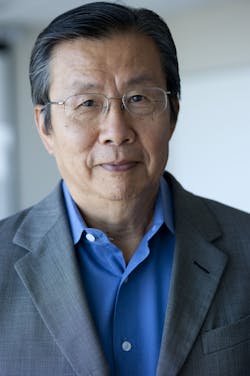
Q: How do you view state-funded incubators structured to commercialize inventions from state universities?
A: An incubator of this nature could be the start of something good for the local economy, but great expectations in terms of creating a string of successful companies are likely to bring disappointment because only a very small percentage of technologies will ever result in products.
Many communities would like to emulate the success of Silicon Valley to stimulate local economies. Looking back, a few visionary VCs funded Fairchild Semiconductor, and from there spawned entrepreneurs and VCs and it built on itself. The infrastructure and culture that took some 40 years to refine now facilitates the development of new businesses.
For communities not accustomed to starting high-tech companies, an incubator could just be the catalyst needed to initiate such an infrastructure. Its presence could encourage more technical people to think about entrepreneurial activities and it could bring together investors and technical entrepreneurs to start companies, and one start-up could lead to another. Realistically, process and culture take time to develop, so the payback is likely to take a long time, and the purpose of an incubator is to initiate the process more than to create companies.
Q: What do you as a venture capitalist look for before investing in a company?
A: Your question is timely because the bubble has left us with impressions that are no longer applicable. In the final analysis, all VCs are looking for a good return on investment. That is, the value that will be created is greater than the money required to build out the company. You can read previous articles I have written in Laser Focus World on this topic; the list of considerations can be very long.
Initial screening is based on gut feel before earnest due diligence work begins. It can be boiled down to whether the business idea makes sense and that it can become a sizable and profitable company in a reasonable period of time, why the team could succeed, and whether the differentiation and competitive advantages are significant. “We are smart folks” is simply insufficient differentiation.
Venture capitalists won’t invest until risks are well understood and somewhat quantifiable-those who are experienced and have an intuitive understanding of the industry can analyze the risks quickly, whereas it would take time for VCs who are not familiar with an industry to get to their comfort zone. One positive outcome of the optical bubble is that far more VCs are familiar with optical technology now.
We, in particular, look for the strength of the technical team. It is a nonstarter if the science behind the technology is not on solid scientific ground. We then work to develop an intuitive understanding of the nature of the business, drawing upon our own experience and working with industry insiders through our vast network of contacts. Experience has taught us that until we understand the dynamics of an industry inside out, the business plan is likely to miss important issues.
A dream team is often thought to be a key consideration-and it does help-but it is unrealistic to expect it to be the primary consideration, especially for first-time entrepreneurs. In the absence of a dream team, we look for really capable founders who have a “fire in the belly” and want to make a real difference. It is far more productive to work with such a team to build out a qualified management team thoughtfully over time than it is to deal with the morass of making organizational changes to an improperly formed early team.
In the final analysis, the ability, attitude, and value system of the core founders are the most important considerations. It is also important that we believe we can develop a trusting and mutually respectful working relationship with them so that by working together we can minimize mistakes to enhance the chance of success.
About the Author
Milton Chang
MILTON CHANG of Incubic Management was president of Newport and New Focus. He is currently director of mBio Diagnostics and Aurrion; a trustee of Caltech; a member of the SEC Advisory Committee on Small and Emerging Companies; and serves on advisory boards and mentors entrepreneurs. Chang is a Fellow of IEEE, OSA, and LIA. Direct your business, management, and career questions to him at [email protected], and check out his book Toward Entrepreneurship at www.miltonchang.com.
